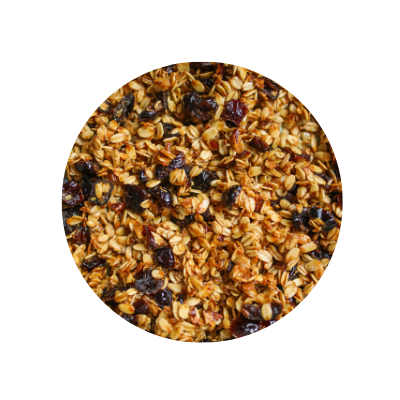Get to know the family
Oats come in different forms. Oat groats are the whole-grain form and take a long time to cook. They need to be well-cooked though because a substance called phytic acid in the bran (or covering) impairs absorption of many of the minerals in oats, such as iron, zinc and copper.
As with many things in life, put the time and effort in and you reap the rewards. In this case, the comforting nourishment of what's become known as "overnight oats".
Rolled, crushed or steel-cut oats are easier to use. Instant oats are the easiest, but they are highly processed and taste... mushy, to be polite. I don't love instant oats.
I buy stock standard organic rolled porridge oats. Although "organic" has become a derided buzz term, for oats it's important. While oats themselves typically don't cause reactions for sensitive tummies, they are easily "contaminated" with other types of grain, including wheat. This is especially an issue for anyone with an actual gluten allergy or intolerance, but is also problematic for many other sensitive foodies.
Overnight oats
- 1 cup porridge oats
- 1 cup milk/milk alternative
- 1 tsp cinammon
- 1/2 teaspoons turmeric
- 1 tsp chia seeds
- Refrigerate for 12 hours
Win!

Use rolled oats:
(Aside from as porridge or in smoothies)

- Ground into flour for baking & thickening
Win!

- Toasted in granola or as a salad topping

